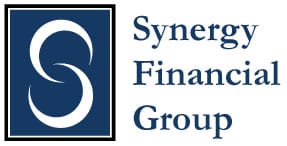The benefits of incorporating a Roth IRA into your retirement strategy are often praised by financial advisers, citing the ability for money to grow tax-free for decades and provide tax-free income in retirement. While a Roth IRA conversion is one way to take advantage of this savings tool, the tax implications of converting investments from a traditional retirement account to a Roth IRA typically deter most people. Yet the effects of new legislation and persistent market volatility make a Roth IRA conversion worth considering, and paying for it doesn’t have to break the bank.
A Roth IRA conversion uses assets from a traditional or rollover IRA, 401(k), SEP or Simple IRA to fund a Roth IRA. Unlike regular contributions to a Roth IRA, which are constrained by income limitations and annual contribution caps, there are no restrictions when converting retirement assets to a Roth IRA. Any amount can be converted regardless of your age, income, or employment status. But the Roth IRA conversion doesn’t come without a cost.
When you convert pre-tax assets in a traditional retirement account to your Roth IRA, the conversion is treated as income and you must pay taxes on the assets converted. The amount you pay in taxes depends on your income tax bracket for the year. In some cases, a substantial conversion in one year could boost taxable income by multiple brackets. To help manage that liability, a series of partial conversions over several years could be planned to keep the distributions within a targeted tax bracket.
For many retirees, income from a traditional IRA or 401(k) can create a tax headache, especially when required minimum distributions (RMDs) raise their tax bracket. That’s where a Roth IRA comes in.
A Roth IRA provides the flexibility to take tax-free withdrawals in retirement when you want and in whatever amount you want. This is unlike other retirement accounts that have RMDs beginning at age 72. The RMDs are taxable income, which means that in addition to your tax bracket they can also impact your Medicare premium bracket and the taxation of your Social Security benefit, whereas distributions from the Roth IRA will not.
This year the CARES Act temporarily pauses RMDs from traditional retirement accounts. So, if you are 72 or older and you don’t take your RMD then your income will be lower. This provides a potential opportunity to make a larger conversion while maintaining the same income tax rate.
Additionally, since the Secure Act of 2020 eliminated the stretch provisions for inherited retirement plans, the Roth IRA is also a great estate planning tool. Non-spousal heirs can no longer take distributions over their life expectancy, but rather all distributions must be taken within 10 years. While this is true as well for an inherited Roth IRA, the distribution would not be a taxable event.
The cost of an IRA conversion can be daunting, but it doesn’t have to be. Conventional wisdom is to pay the resulting tax bill with non-taxable assets from outside the retirement plan. Using plan assets would defeat the purpose of the conversion as you will permanently give up a portion of the capital that is accumulating on a tax-free basis. In addition, if you’re under age 59 ½, the portion of plan assets used to pay for the conversion could also be subject to a 10% tax penalty.
If you have the cash on hand, that’s likely the best way to cover the tax implications. But depending on the size of the conversion and your tax bracket, the up-front costs could be significant. Another option is to take out a loan against your life insurance policy. While this permanently reduces the policy value if not repaid, the loan doesn’t count as taxable income so long as the policy isn’t surrendered, doesn’t lapse, and the amount owed doesn’t exceed the premiums paid. If any of these do occur then the tax implications will likely be even larger than the taxes paid on the Roth IRA conversion.
For more smart financial news and advice, head over to MarketWatch.
We are ready to help you find the best possible mortgage solution for your situation. Contact Sheila Siegel at Synergy Financial Group today.







